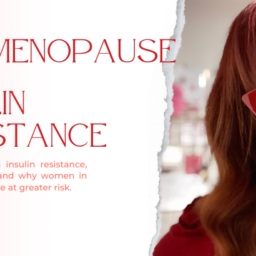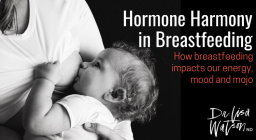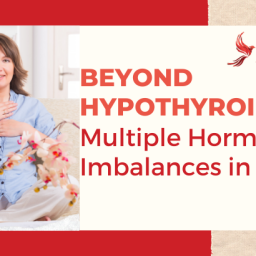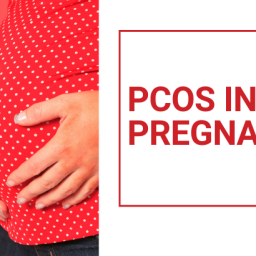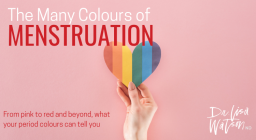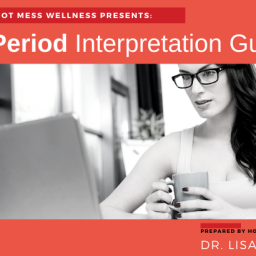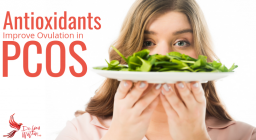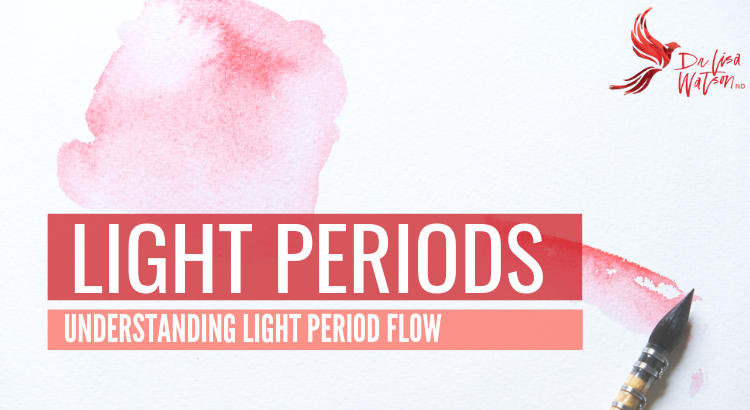
While many women would be thrilled to have light periods, it can be concerning for women when they have previously had “normal” flow. It leads many women to ask:
What is causing my light periods?
Is your period light?
Women lose, on average between 2-3 tbsp (30-50ml) of blood during a single period. How do you know if your period is lighter than usual?
If you use a menstrual cup, you can easily track how much blood you lose in a period. If you use tampons or pads, keep in mind that a regular tampon or pad will hold about 5ml of blood. Super tampons and pads will hold about twice that much. Period panties can also hold up to 10ml of liquid.
BUT, not all the fluid lost during your period is blood. Only just over a third is blood – the rest is mucus and other fluids. If you really want to know how much blood you are losing, estimate how much fluid is lost in each cycle (i.e. how many tampons or pads did you use and how full were they?) and multiply it by 0.36 to determine how much blood was lost.
So is your period light? If you are losing less than 2 tbsp (30ml) of blood in a cycle, then your periods are light. But ladies, we don’t really need the math! If you think your periods are light – they likely are.
Causes of Light Periods
Light periods are often due to, you guessed it, hormones. In particular there are a few hormonal situations that can lead to light periods.
- Perimenopause – heavier or lighter, changes in period flow are one of the earliest signs of perimenopause
- Pregnancy – early in a pregnancy woman may experience implantation bleeding, which may look like a light period, but isn’t a true period.
- Breastfeeding – the hormone levels in breastfeeding (high prolactin especially) can lead to lighter periods.
- Hyperthyroid – high levels of thyroid hormones, as found in hyperthyroidism, can cause women to experience very light periods, and in some cases, no period at all
- Teens – teen girls are more likely to have cycles where they do not ovulate, and may experience only spotting or very light spotting.
- Anovulation – unsurprisingly, if you don’t ovulate, you won’t have much of a period. Some women experience no periods when they don’t ovulate, other women can have light periods (and often irregular periods)
- Being underweight – a known cause of anovulation, being underweight can cause periods to be very light or to stop altogether. This can also happen when women over-exercise.
- Stress – the hormone imbalance no one thinks of as a hormone imbalance, stress can impact your pituitary function and cause you to have cycles without ovulation, leading to light periods (or missed periods)
- Birth control pills – the pill can cause a reduction in the buildup of the uterine lining, causing lighter periods. Hormonal IUDs, implants and injections also cause a thinner uterine lining and lighter periods, or no periods at all in some women.
Normalizing Period Flow
Ultimately, if you are concerned your periods may be too light, you should talk to someone about it. Start by tracking your cycles and your blood loss so that you can share that information with your Naturopathic Doctor. Together you will determine the most likely cause for the light periods – be that a lifestyle factor like your exercise or body weight, or a hormonal issue like lack of ovulation or perimenopause. By addressing the underlying cause you will be able to put together a plan to normalize your periods and bring you into hormonal balance.
Disclaimer
The advice provided in this article is for informational purposes only. It is meant to augment and not replace consultation with a licensed health care provider. Consultation with a Naturopathic Doctor or other primary care provider is recommended for anyone suffering from a health problem.



